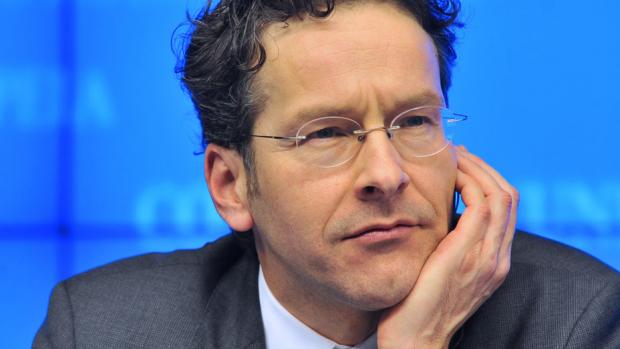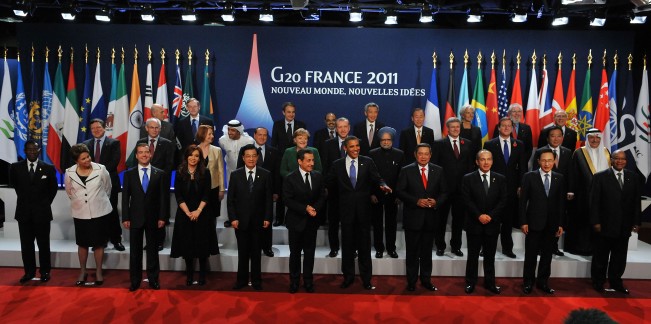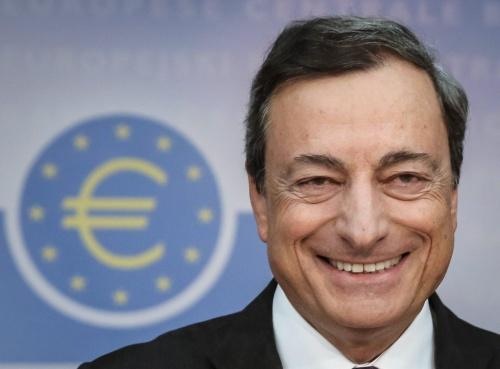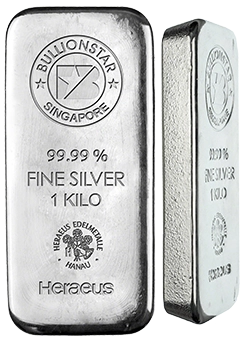The Netherlands Planned To Introduce New Currency in 2012
The Netherlands (and likely Germany as well) made concrete plans in 2012 to switch to a new currency in case the euro would crash. Not long after the emergency currency was ready the Dutch began repatriating 122.5 tonnes of gold from New York. This can be very important as there is a possibility the Eurocrisis will ignite again. Monday we learned Greece will have new elections on January 25 that could bring the anti-bailout Syriza party to power, risking Greece’s membership of the Eurozone.
What Do We Know?
Researchers from Argos Medialogica, a Dutch TV documentary about Greece and the Eurocrisis 2010-2012 (broadcasted November 18, 2014), were told the Dutch emergency currency was called the Florijn. The voice over in the documentary states:
One of the emergency scenarios, according to anonymous sources, is the introduction of a new Dutch currency, the Florijn.
A spokesperson from the Dutch Ministry Of Finance couldn’t confirm nor deny the Florijn back-up plan. “We were prepared for everything, but our main goal was to keep the euro together”, said the spokesperson. Klaas Knot, Governor of the Dutch Central Bank since July 2011, stated the following in an interview in March 2014:
Interviewer: Were there moments on which you thought, it’s going to collapse? The euro will collapse in 2012; we’re going to lose it?
Klaas Knot: There certainly have been moments that I thought about this. There were also moments that we started to think, within the central bank, about emergency scenarios, we made preparations.
Interviewer: You made those preparations, back to the guilder? [the guilder was the Dutch currency before the euro]
Klaas Knot: If it would have been the guilder is not sure, but yes, we were prepared for scenarios in which we were confronted with the collapse of the euro. And then you must think of course, what are we going to do? No matter how much we didn’t want this scenario to happen. You must, as a central banker, always be prepared for all possible outcomes.
Interviewer: If I would ask you in ten years, or perhaps you can answer this question now; were we, at that moment, dangerously close to a financial meltdown in Europe? And when was this?
Klaas Knot: It was in the summer of 2012, also previously in late 2011. There were two occasions on which we had to act. We had to do something that was within our mandate. We had the feeling we were in trapped a situation that we didn’t cause. We had to act, we were the only ones that could act, and we did act. It was a situation I never want to be in again.
To watch the interview with Klaas Knot, make sure captions are on.
Knot confirmed The Netherlands could switch to a new currency in 2012 if the euro would crash. Jeroen Dijsselbloem, current Minister Of Finance of The Netherlands, confirmed the same in an interview by RTL Z (November 18, 2014).
Dutch website Geenstijl.nl has submitted a WOB request (the Dutch equivalent of a FOIA request), to Dijsselbloem asking for access to all documents regarding the back-up currency. Dutch law forces the government to reply to a WOB request within four weeks, but the delivery of documents can be prorogued by the government by another four weeks. In December government officials plead to postpone access to the documents until January 18, 2015.
In the past I have submitted several WOB requests to the Dutch central bank (DNB) regarding correspondence between DNB and the Federal Reserve Bank of New York (FRBNY) and the bar numbers of all Dutch official gold reserves. DNB replied WOB request can be submitted for just about anything, except matters regarding gold.
The Dutch-German Alliance
Most statements of Dutch politicians and the Dutch central bank at the height of the Eurocrisis were exactly the same, “We are prepared for everything, but our main goal is to keep the euro together”. Apparently, this was clearly communicated among all policy makers in The Netherlands and Germany. The next quotes are from Wolfgang Schäuble, German Minister of Finance in 2012:
We want Greece to remain in the Eurozone. But it also has to want this and to fulfill its obligations. We cannot force anyone. Europe will not sink that easily…
The idea that we would not be able to react quickly to something unforeseen is wrong. We have learned a lot and built defenses.
The Dutch and the Germans are an alliance for decades – post WWII – and certainly were at the time of the Eurocrisis. The Medialogica documentary gives a unique insight of how this alliance works out at the highest level.
During the summits that were organized in the heat of the Eurocrisis, meant to reassure the markets all would be well, the Dutch Minister Of Finance at the time, Jan Kees De Jager, closely cooperated with Wolfgang Schäuble. They discussed their views prior to the summits; subsequently, during the negotiations De Jager would do the talking, knowing Schäuble backed him. The Dutch-German strategy was to make sure Greece was pressured to reform and did not get an easy bailout. From Medialogica:
(15:07) De Jager: If someone wanted to talk about this [a Greek exit], it was being silenced in the Eurogroup because they didn’t want to talk about it or didn’t dare to talk about it. There was the danger it could leak; there were a lot of people in the Eurogroup, even more in the ECOFIN, the council of the whole European Union that is even bigger, but solely from the Eurogroup things leaked in the press, sometimes while we were still in a meeting.
(16:40) …I called extensively with my colleague in Germany, but I also had correspondence on other levels. There was sort of an agreement between us that allowed us to be very tough in negotiations. And this helped Germany a lot. So we would have a common view, discussed in advance; what could we achieve, what would be our strategy, and usually I was the one who did the talking in the meetings [at the summits].
(37:45) Voice over: … the Dutch government makes drafts of emergency scenarios. A special multidisciplinary team, which consists of lawyers, foreign policy experts and economists, meets every Friday at the Ministry Of Finance. Every possible outcome is being discussed.
(38:00) De Jager: What would happen if…? What if Greece leaves the Eurozone, what consequences would that have? Would this actually be possible, juridical, economically, what would happen to money in Greece? Large amounts of cash, which can be transported by truck or car to The Netherlands or Germany and then deposited. We thought about all kinds of scenarios, so if something terrible would happen, we could promptly secure the core function of our payment system.
The close cooperation between the two nations and Schäuble’s statement (We have … built defenses) makes me think Germany had a similar back-up plan for a new currency (perhaps they even had a joint plan). The German Ministry Of Finance did not outright deny that it made similar plans as The Netherlands when contacted by the newswire EUobserver.
Because a lot of information was leaked to the press, many countries didn’t dare to discuss Greece leaving the euro in the Eurogroup, the council of 18 European Ministers Of Finance. Emergency plans were only discussed off the record, for example by The Netherlands and Germany. If other European countries prepared emergency currencies I don’t know. The ECB, IMF and EU (the Troika) did make plans for Greece to return to the Drachme.
Gold
According to my research DNB started its operation to repatriate 122.5 tonnes from the US in late 2012 (remember Knot’s statement:“You must, as a central banker, always be prepared for all possible outcomes.”), Germany started to repatriate approximately at the same time. Although Germany had an unexplainable slow start in repatriating, presumably both countries started to repatriate concurrently to preparing emergency currencies. It’s hard to see these events separated from each other.
Are the repatriations by Europe a lack of faith in the euro? That’s hard to tell, on one hand repatriations can be seen as a lack of trust in the custodian (US):
- If The Netherlands and Germany would fully trust the US why would they repatriate their gold? Obviously they don’t trust the US.
- We must not forget the euro in itself was created to move away from the US dollar (it was not created to fail a few years down the line).
- The Eurozone has shown to go to great lengths to hold the euro together. It could have kicked out Greece on many occasions, but it didn’t.
- Since 1999 nearly all European central banks collaborate in a program called the Central Bank Gold Agreements (CBGA) to match gold policy.
- The Eurosystem is increasing its allocated official gold reserves, as published by the German central bank.
On the other hand the Eurozone still faces large obstacles, like democracy, that could throw a wrench in the whole project. Many European leaders have been willing to create a solid euro and allign their gold policy, but can the euro survive? Can it overcome its problems?
In November 2014 the Financial Times got hold of a transcript of interviews Timothy Geithner, former US Treasury Secretary, gave to assistants preparing his book, Stress Test: Reflections on Financial Crises. An interesting snippet from the transcript:
Geithner: To be sympathetic to them, the Germans’ experience has been every time they buy a little bit of calm [on the] markets and the Italian spreads start to come down, Berlusconi reneges on anything he committed to do. So they were just paranoid that every act of generosity was met by sort of a “fuck you” from the establishment of the weaker countries in Europe, political establishment of those weaker countries in Europe, and so the Germans were just apoplectic. Sarkozy, who is trying to navigate between the Germans’ view of the crisis and the fact that France was suffering a fair amount of collateral damage, too, because Europe’s getting somewhat weak, he’s in election [campaigning]. He’s trying to figure out how to bridge this difference…
There’s a G20 meeting in France that Sarkozy hosts which was really incredibly interesting, fascinating thing for us and for the president and I’ll tell you just a few quick things in passing so we can come back to those things. The Europeans actually approach us softly, indirectly before the thing saying: “We basically want you to join us in forcing Berlusconi out.” They wanted us to basically say that we wouldn’t support IMF money or any further escalation for Italy if they needed it if Berlusconi was prime minister. It was cool, interesting. I said no…
Silvio Berlusconi was replaced by Mario Monti in 2011, though Monti, a former EU commissioner, was not elected by the Italian people. This begs the question if the EU can circumvent democracy indefinitely.
The repatriation movement is foremost an act of distrust in fiat currencies in general. Whether it’s the dollar, euro, ruble or peso; they can all go to zero. Our international monetary system is detached from gold as an anchor since 1971, cracks in the system are appearing on all continents. Printing money can only buy time.
Conclusion
An improvised speech from Mario Draghi, Governor of the European central bank, led to the aversion of a financial meltdown in July 2012. Draghi stated in London:
Within our mandate, the ECB is ready to do whatever it takes to preserve the euro. And believe me, it will be enough.
According to Geithner the remarks were “off-the-cuff” and “totally impromptu”. Snippets from the transcript:
Geithner: Things deteriorated again dramatically in the summer which ultimately led to him saying in August, these things I would never write, but he off-the-cuff – he was in London at a meeting with a bunch of hedge funds and bankers. He was troubled by how direct they were in Europe, because at that point all the hedge fund community thought that Europe was coming to an end. I remember him telling me [about] this afterwards, he was just, he was alarmed by that and decided to add to his remarks, and off-the-cuff basically made a bunch of statements like ‘we’ll do whatever it takes’. Ridiculous.
Interviewer: This was just impromptu?
Geithner: Totally impromptu…. I went to see Draghi, and Draghi at that point, he had no plan. He had made this sort of naked statement of this stuff. But they stumbled into it.
As Jean-Claude Juncker, former Eurogroup leader, said in 2011 On Greece’s economic meltdown:
When it becomes serious, you have to lie.
It wouldn’t surprise me at all if Europe was saved by a firm lie. Global economics is increasingly influenced by speeches from central bankers; only words, true or false. Sometimes they don’t even have to take the effort to create billions in fiat currency units with the stroke of a keyboard; the threat to flood the system with money is sufficient to steer financial markets. These are the fundamentals of our global economy today, which are terribly weak. Some policy makers know this – the ones that buy or repatriate gold.
I present the Argos Medialogica documentary, a fascinating watch inside the Eurocrisis. Most of it is spoken in English, when you hear another language please read the English subtitles (make sure captions are turned on).
Starring (titles refer to 2011 or 2012):
- Giorgos Papandreou (Greek Prime Minister)
- Giorgos Papakonstantinou (Minister Of Finance of Greece)
- Jan Kees de Jager (Minister Of Finance of The Netherlands)
- Mario Monti (Italian Prime Minister)
- Nout Wellink (Governor of the Dutch central bank)
- Jean-Claude Trichet (Governor of the European central bank)
- Jean-Claud Junker (Eurogroup leader)
- Olli Rehn (European Commissioner)
- Paul Mason (BBC, Newsnight)
- John Fraher (Bloomberg)
- Peter Spiegel (Financial Times)
- Christoph Schult (Der Spiegel)
Popular Blog Posts by Koos Jansen
 China’s Secret Gold Supplier is Singapore
China’s Secret Gold Supplier is Singapore
 Audits of U.S. Monetary Gold Severely Lack Credibility
Audits of U.S. Monetary Gold Severely Lack Credibility
 China Gold Import Jan-Sep 797t. Who’s Supplying?
China Gold Import Jan-Sep 797t. Who’s Supplying?
 The Gold-Backed-Oil-Yuan Futures Contract Myth
The Gold-Backed-Oil-Yuan Futures Contract Myth
 Estimated Chinese Gold Reserves Surpass 20,000t
Estimated Chinese Gold Reserves Surpass 20,000t
 Did the Dutch Central Bank Lie About Its Gold Bar List?
Did the Dutch Central Bank Lie About Its Gold Bar List?
 PBOC Gold Purchases: Separating Facts from Speculation
PBOC Gold Purchases: Separating Facts from Speculation
 U.S. Mint Releases New Fort Knox Audit Documentation
U.S. Mint Releases New Fort Knox Audit Documentation
 China Net Imported 1,300t of Gold in 2016
China Net Imported 1,300t of Gold in 2016
 Why SGE Withdrawals Equal Chinese Gold Demand and Why Not
Why SGE Withdrawals Equal Chinese Gold Demand and Why Not






 Koos Jansen
Koos Jansen













